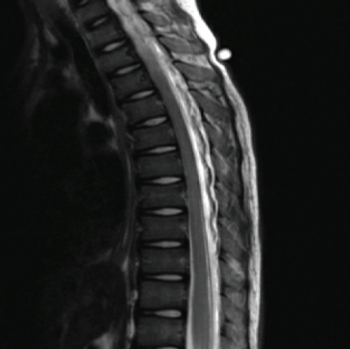
According to findings, more consideration for individual differences in adverse experiences is needed for targeted interventions.

According to findings, more consideration for individual differences in adverse experiences is needed for targeted interventions.

Get caught up with our journal! Review some of the top stories from the Contemporary Pediatrics website over the last week, and catch up on anything you may have missed.

Alan Percy, MD, discusses where the general provider comes in when treating Rett syndrome and prescribing trofinetide (Daybue).

Alan Percy, MD, discussed what the FDA approval of trofinetide (Daybue) has meant to patients with Rett syndrome aged 2 years and older.

An 11-year-old boy with a history of asthma and allergic rhinitis presented to the emergency department (ED) with worsening fatigue, minimal responsivity to external stimuli, and diffuse muscle weakness for 2 months.

ConSynance Therapeutics' CSTI-500, an innovative Triple Monoamine Reuptake Inhibitor, has received FDA's Rare Pediatric Disease Designation for treating Prader-Willi Syndrome in children.

The submission to the FDA includes data from the phase 2b ReNeu trial of patients aged 2 years and older with NF1-associated PN causing significant morbidity.

The decision makes pitolisant the first and only FDA-approved, non-scheduled treatment option for daytime sleepiness in this patient population.

The company also announced that it has surpassed its interim analysis enrollment target and expects topline phase 3 data from the FORTIFY study (NCT05775848) among individuals with LGMD21/R9 in 2025.

Approximately half of study participants had tried lifestyle modifications and used vitamin supplementation, and most were taking multiple medications.

The analysis was based on 573 hospitalizations (most patients had an average of 2 hospitalization episodes) in which new BCs were drawn more than 48 hours after initial cultures were negative.

The maximum daily dose has increased from 80 mg to 100 mg.

Data from the ongoing phase 1/2 CHORD trial was presented at the ASGCT annual conference.

With the approval comes the immediate availability of 5 mg, 7.5 mg, 10 mg, 12.5 mg, and 15 mg doses for patients between 2 to 5 years of age.

The decision makes givinostat the first nonsteroidal drug approved to treat patients with all genetic variants of DMD.

The approach can improve mental health and various subgroups such as cognitive function, psychological well-being, and more.

William Gallentine, DO, explains why he is excited for the year ahead when it comes to epilepsy treatment as new technologies emerge and the treatment landscape changes.

William Gallentine, DO, explains the initial signs of pediatric seizures and epilepsy and how pediatricians can point them out, all while reassuring parents and determining proper care.

Review some of the top stories from the Contemporary Pediatrics website over the last week, and catch up on anything you may have missed.

In this Contemporary Pediatrics interview, Rob Knight, PhD, discusses translating adult studies into children to determine gut microbiome biomarkers, and how they are associated with neurological and cognitive conditions.

Review some of the top stories from the Contemporary Pediatrics website over the last week, and catch up on anything you may have missed.

In a recent study, improved neurodevelopmental outcomes were seen in children aged 2 years whose mothers received a Mediterranean diet or mindfulness-based stress reduction intervention during pregnancy.

Rob Knight, PhD, Wolfe Endowed Chair in Microbiome Science at Rady Children's Hospital-San Diego, professor of pediatrics, UCSD, explains how links between gut microbiomes and cognitive and neurological conditions are being researched and what could be ahead for these associations in children.

Watch as Rob Knight, PhD, Wolfe Endowed Chair in Microbiome Science at Rady Children's Hospital-San Diego, professor of pediatrics, UCSD, talks the gut microbiome and the potential associations with cognitive and neurological conditions in children, and why the topic is gaining interest and momentum.

In a recent study, Developmental Assessment of Young Children, second edition scores for neurodevelopmental outcomes did not differ between infants exposed to maternal COVID-19 during pregnancy and those not exposed.